Sharing the love
This year the love of my life Brett and I got married and, instead of gifts, we requested our 200 wedding guests donate funds to Migori Health & Rights Network, a network that is working to improve school attendance among schoolgirls in Kenya and empower young women with knowledge and skills for socio-economic development.
I partner on this project with the wonderful Christopher Abuor who is the man on the ground making it all happen.
Chris and I have all sorts of interesting conversations online. I can’t say I’ve ever spoken in such depth to a man about a woman’s period and about how we stop it from completely taking over our lives.
Chris and the Migori Health & Rights Network distribute sanitary pads to girls in primary schools and to young women (mostly siblings and friends of the pupils attending studies in schools in Migori). We’ve been doing this on an ad hoc basis for about a year.
Our wonderful friends and family gifted an amazing total of $7000. With these wedding funds, we were able to set up our first project, the Rongo Community Reproductive Health Program in Migori, Kenya.
How the funds were spent
We set up a community hub (12 month lease) complete with desk, office chair, computer, internet access, meeting room table and 6 chairs. We also carried out some minor renovations and a local artist painted a street front logo/mural.
Most importantly, we distributed sanitary pads to girls in three schools for four months.
While writing this, I’m so emotional. Tears well.
It’s hard to explain the impact this has had on the lives of these girls, particularly towards the end of the year. Often it’s the difference between sitting an exam and not sitting an exam.
Some heartwrenching background
Studies point to widespread poverty linked to maturation or the onset of puberty (menstruation) as the reason why girls miss classes or drop out altogether. Gender insensitive classrooms and poor/inadequate sanitary facilities in schools are also cited as a factor that makes most girls not come to school during their monthly period.
Schoolgirls in urban slums and rural areas often find themselves staying at home for up to 5 days a month during their menstruation period, as sanitary towels are either unavailable or unaffordable.
As a result of this, adolescent girls perform worse in school than their male counterparts – this is because a girl absent from school due to menses for four days in a month of 28 days loses 288 lessons in a calendar year translating to 192 hours of missed learning due to absenteeism. In some instances, some girls, especially those in higher grades drop out of school completely.
Further, due to the high cost of sanitary towels, girls from poor families resort to using unhygienic means (such as toilet tissue, newspaper and pieces of mattress/bedding) to manage menstrual flow and therefore most of them will avoid school altogether during their menstrual period.
Consequently, due to lack of money to purchase the costly sanitary pads, most of these girls become vulnerable to risky sexual behaviour e.g. transactional sex.
Next steps
Rongo Community Reproductive Health Program has been so successful that we’re almost ready for the next step in the project – sex education in schools.
Sex education in Kenyan schools focuses on puberty, but not on safe sex. Abstinence is preached and, due to Christian fundamentalism, condoms are neither talked about nor distributed.
The reason this is so sad is two-fold. Firstly, three teenage girls we know have become pregnant so will be forced to drop out of school (the boys involved get to remain at school). Secondly, the Christmas holiday period sees many teenagers participating in unsafe sex, making next year’s schooling or next year’s higher education an impossibility.
While we will continue to seek funds for sanitary products, we are looking forward to working with schools in Migori to start delivering a drama-based community development project, creating a safe space to talk about safe sex practices.
This development wouldn’t have been possible without setting up a community hub in town and distributing the sanitary products to the teachers and girls at the three schools.
Thanks to you
The results are all thanks to you. Amazing feeling isn’t it?
On behalf of Brett, myself, Chris and the team on the ground in Migori, we thank you all.
We realise our thank you is a bit different from the norm, but we wanted to wait until we had some pictures to show you and a bit of a story to tell.
All our love to you for making this real. This is our very public thank you.
Love Elissa and Brett.
Some photos of the renovations
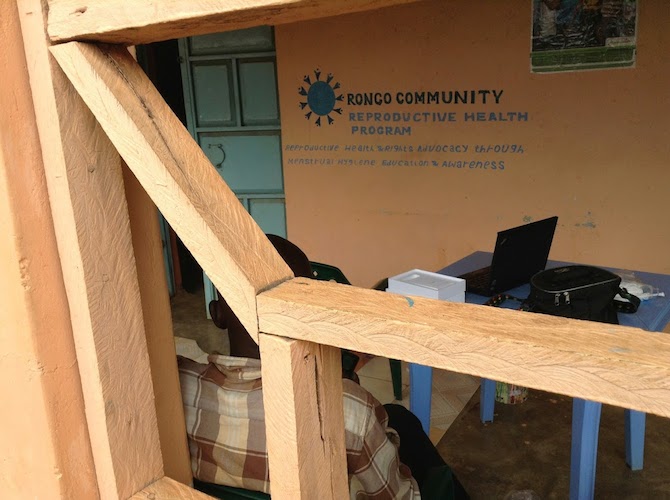
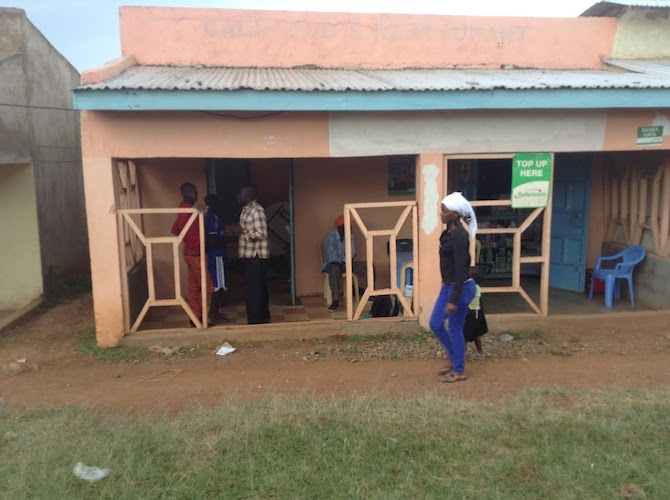
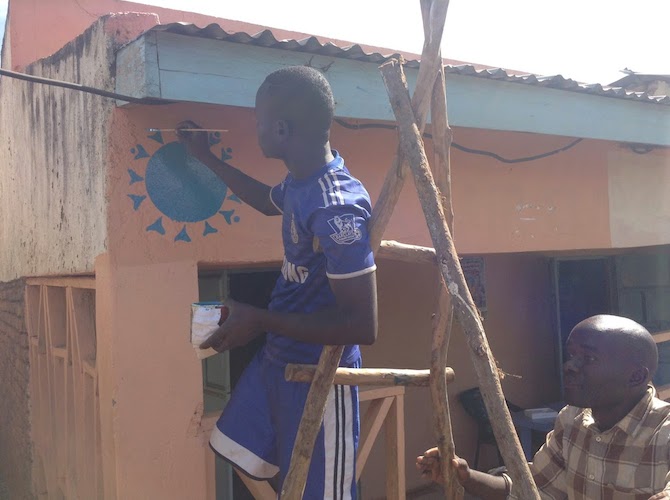
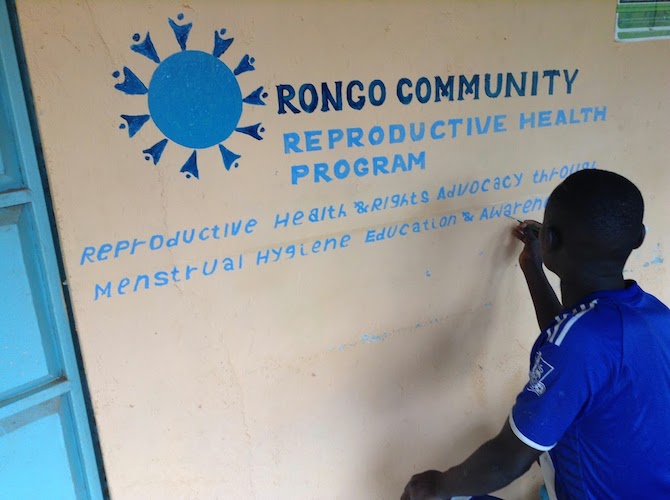
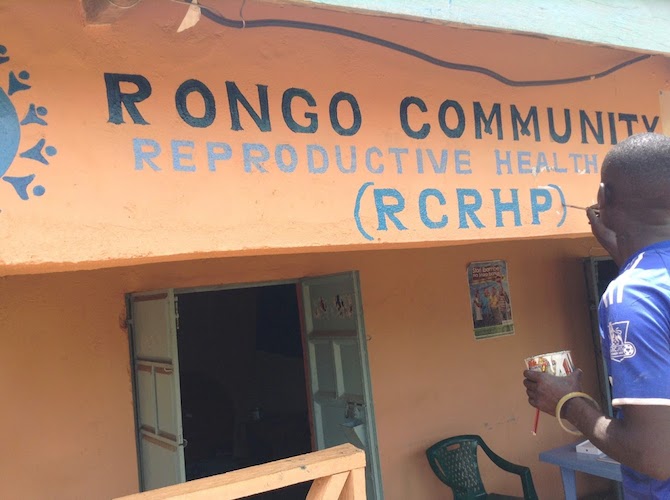
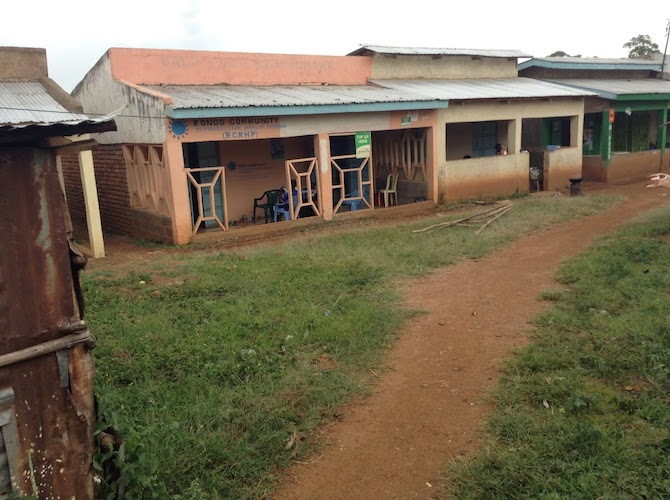
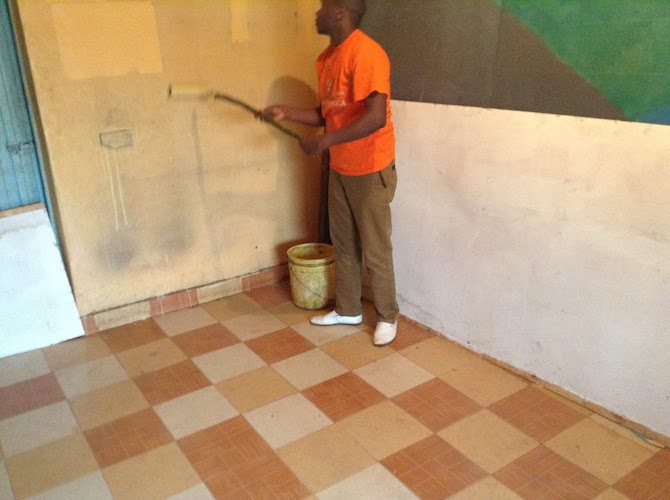
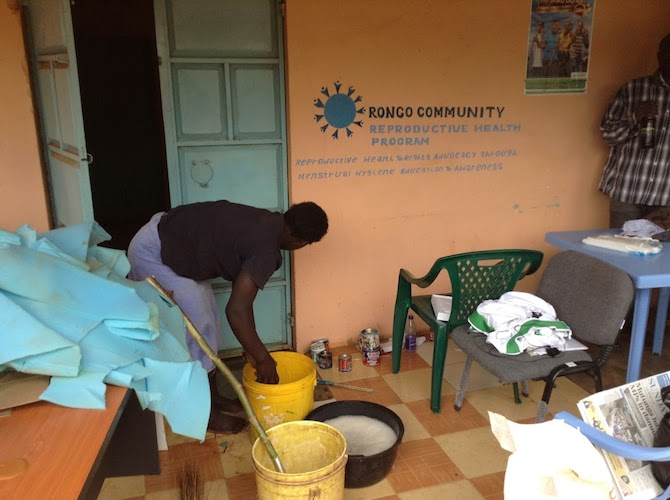
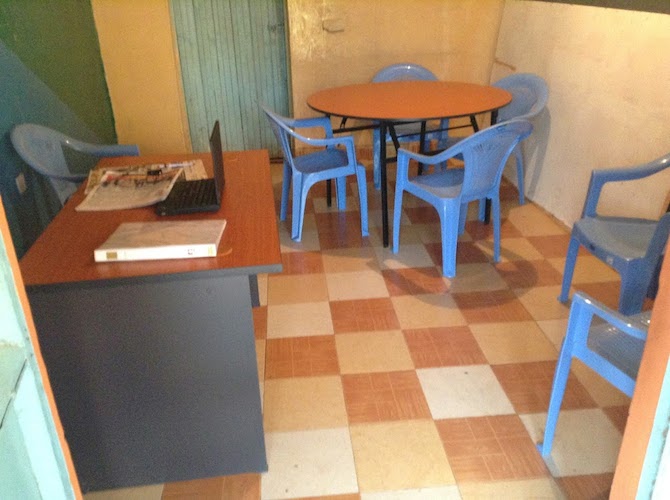
Well done to all involved in making this happen. It was so nice of you and your husband to donate your wedding gifts to this worthy cause.
You mentioned that sex education is not discussed in depth in the education system and this is sad for 2 reasons:
1. Teenage girls being forced to drop out of school as a result of an unplanned pregnancy
2. An influx of unsafe sex over the holiday period, resulting in girls being forced to leave the education system
I would extend that to a third reason:
3. The resulting unplanned pregnancies leads to unsustainable population growth in an area already struggling to support its existing population.
This is why sex education and access to contraceptives is so important, which you have indicated would be part of “The Next Step”. On that note, could you consider partnering with Dr Doug Stein who has worked in Kenya performing vasectomies? See https://www.youtube.com/watch?v=c7H4VrY-7Qo
Also related: http://theconversation.com/kenya-needs-a-new-plan-to-make-contraceptives-accessible-again-48470
Keep up the good work!
What a fantastic effort!
Regarding the distribution of sanitary pads, have you considered the reusable “cup” instead of disposable sanitary pads? Example: http://www.juju.com.au
Obviously, access to clean water is a must for such a device (which should be a high priority anyway) but it could be a more sustainable solution than the landfill-creating disposable ones. I’ve been using a cup for 2 years now and saved a lot of money and also find it a lot more comfortable. Bonus is it’s better for the environment!
Hi Jodie,
Thanks so much for your kind words. #3 is absolutely spot on.
I’d be fascinated to learn more of Dr Doug Stein’s work. We have more contact with teenagers and schools than parents, but our new community hub could certainly look into investigating that into the future. It sounds like a good option for those who have finished their family (or are keen to just have a small family).
We’d LOVE to give away/make available contraceptives to these girls. Funnily enough, we’d had an offer from a drug manufacturer to supply health meds and the only thing they don’t do is contraceptives!
Thanks for sharing all that info. Really really appreciate it.
Elissa. 🙂
Hi Angela,
Yes, we’ve considered the cup and would like to investigate it further, but need some expertise on the ground before doing so. Chris and the team on the ground can easily distribute sanitary pads to schools, but educating about the cup is a whole different kettle of fish!
So just a bit of a tricky option at this stage, but with the community clinic now established I think it could work better in terms of education on sanitation etc etc.
Even as an environmentalist, I feel a bit uncomfortable imposing this as an idea when we’re not even doing it in Australia. But Chris and I are very open to it and I think it’s a great idea. 🙂
Elissa.